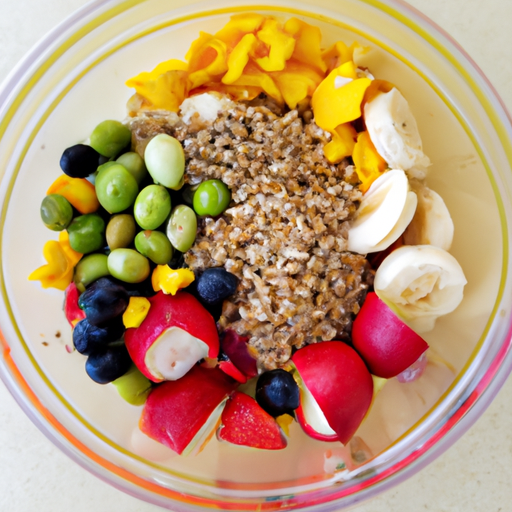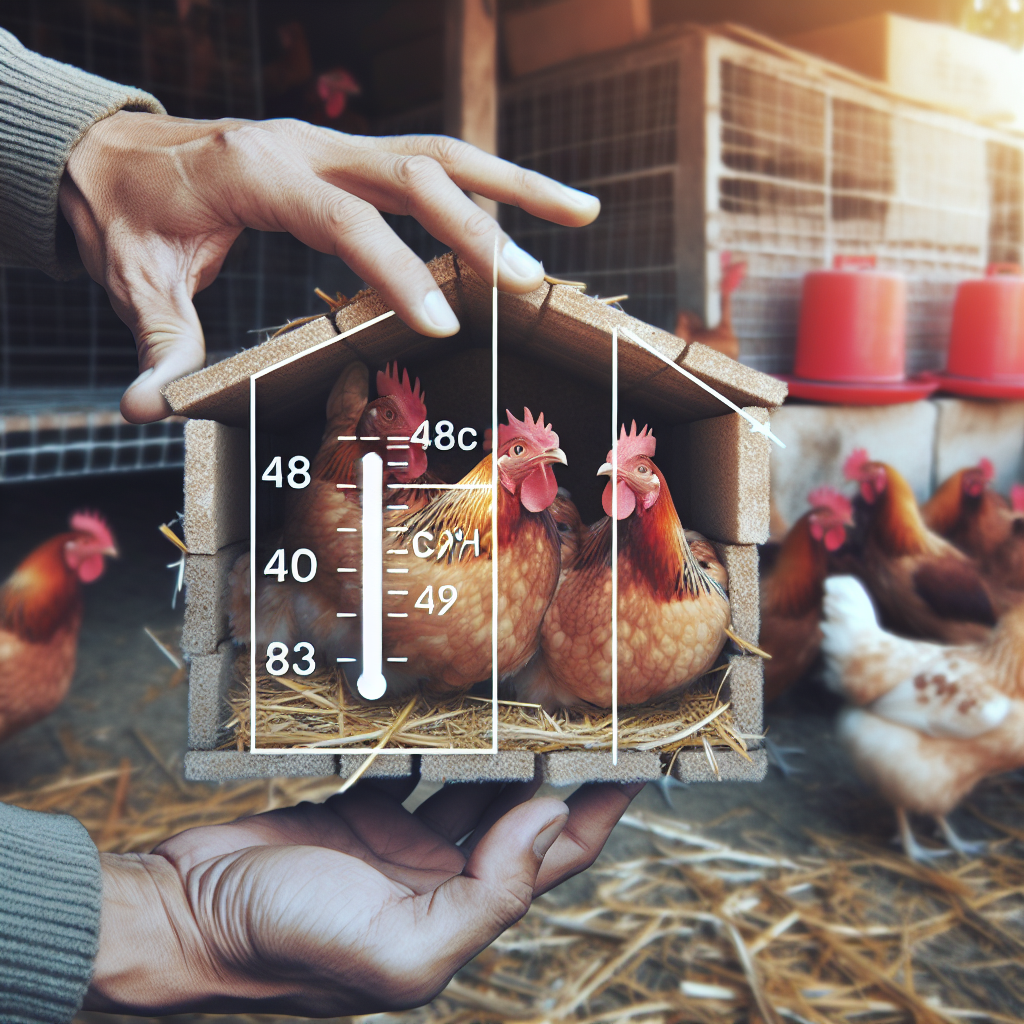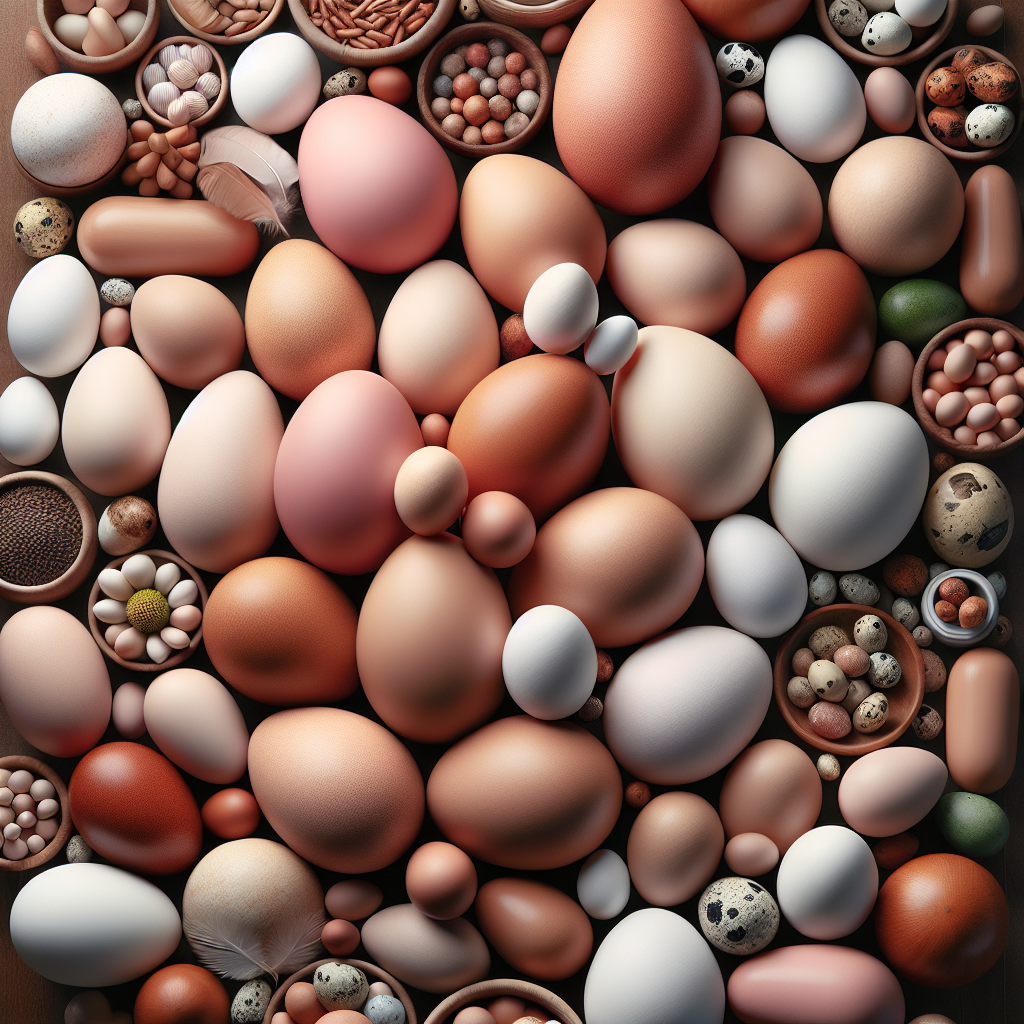Did you know that providing your chickens with a balanced and nutritious diet is crucial for their overall health and well-being? Feeding your feathered friends the right combination of protein, carbohydrates, fats, vitamins, and minerals not only ensures their optimal growth and egg production but also boosts their immune system and prevents various health issues. In this article, we will explore some effective strategies and tips on how you can ensure that your chickens receive a well-rounded diet, keeping them happy and healthy. So, let’s get started on this exciting journey towards providing your poultry pals with the best nutrition possible!
Choosing the Right Feed
Understanding the Nutritional Needs of Chickens
To ensure your chickens have a balanced and nutritious diet, it is crucial to understand their specific nutritional needs. Chickens require a well-rounded diet consisting of various nutrients, including carbohydrates, proteins, fats, vitamins, minerals, and water. These nutrients play vital roles in their growth, development, egg production, and overall health.
Types of Chicken Feed
When it comes to feeding your chickens, there are different types of feeds available on the market. The most common options include mash, pellets, and crumbles. Each type has its own advantages and disadvantages.
Mash is the least processed form of chicken feed, consisting of a finely ground mixture of grains and other ingredients. It is easy for chickens to consume but can be messy, leading to wastage.
Pellets are compressed feed forms that provide a balanced mixture of nutrients. They are uniform in size, easy to store, and minimize waste. However, some chickens may have difficulty adapting to the texture of pellets initially.
Crumbles are smaller versions of pellets that are suitable for chickens of all ages. They are easier for younger birds to consume and are less likely to be wasted. However, crumbles can become powdery over time and lose their nutritional value.
Evaluating Feed Labels
When selecting chicken feed, it is essential to evaluate the feed labels to ensure you are providing your chickens with the best possible nutrition. Look for labels that clearly list the ingredients and their percentages. Avoid feeds that contain excessive fillers, additives, or artificial preservatives. Ideally, opt for feeds that are specifically formulated for the age and purpose of your birds, such as starter feed for young chicks or layer feed for laying hens. Consulting with a poultry nutritionist can also provide valuable insights into selecting the right feed for your chickens.
The Role of Grains and Protein
Providing Adequate Grain Sources
Grains are an essential component of a chicken’s diet as they provide a valuable source of energy. Good grain sources for chickens include corn, wheat, barley, oats, and millet. It is important to ensure that grains are properly processed and free from contaminants. Whole grains should be cracked or crushed to enhance digestibility, as chickens lack teeth and rely on the gizzard to grind their food.
Selecting Protein-Rich Feed
Protein is crucial for a chicken’s growth, feather production, and egg development. While birds receive some protein from grains and insects they forage, it is essential to supplement their diet with protein-rich feed. Chicken feeds typically contain various protein sources, such as soybean meal, fishmeal, and animal by-products. Ensure that the feed you choose provides adequate protein for your chickens’ specific needs based on their age and purpose.
Supplementing with Protein-Rich Treats
In addition to their regular feed, you can also supplement your chickens’ diet with protein-rich treats. This can include mealworms, earthworms, or even cooked eggs. These treats not only provide additional protein but also serve as a source of enrichment for your chickens. Just be sure to offer treats in moderation and balance them with the rest of their diet.
Importance of Fresh Vegetables and Fruits
Incorporating Vegetables into the Diet
Fresh vegetables are an excellent addition to a chicken’s diet as they provide essential vitamins, minerals, and fiber. Leafy greens like spinach, kale, and lettuce are rich in nutrients and can be fed raw or cooked. Other vegetables, such as carrots, pumpkins, and zucchini, can be grated or chopped to make them more consumable for chickens. Remember to wash vegetables thoroughly and remove any spoiled or toxic parts before offering them to your birds.
Offering Fruits as Nutritious Treats
Fruits are a tasty and nutritious treat for chickens. Not only do they provide an array of vitamins and minerals, but they also offer a refreshing source of hydration. Fruits like apples, berries, watermelon, and grapes can be sliced or diced and offered to your chickens. Avoid feeding them fruit pits or any fruit that is overly ripe or spoiled.
Ensuring Access to Clean Water
Importance of Hydration for Chickens
Water is vital for maintaining a chicken’s health and well-being. Chickens need access to clean, fresh water at all times to stay hydrated, regulate their body temperature, aid digestion, and support other physiological functions. It is essential to ensure that water is readily available, especially during hot weather or when feeding dry feeds.
Providing Clean Drinking Water
To ensure your chickens have access to clean drinking water, regularly clean and refill their water containers. Use containers with narrow openings to prevent them from soiling the water with their feet or droppings. Consider using waterers with nipples or cups that keep the water clean and minimize wastage. Additionally, during freezing temperatures, provide warm water or use heated waterers to prevent the water from freezing.
Essential Vitamins and Minerals
Understanding the Role of Vitamins and Minerals
Vitamins and minerals are essential for the proper growth, development, immune function, and overall health of chickens. Each vitamin and mineral has its own specific functions and requirements. Vitamin A is important for vision and reproduction, vitamin D aids in calcium absorption, and vitamin E acts as an antioxidant. Similarly, minerals like calcium, phosphorus, and magnesium play crucial roles in bone development, eggshell quality, and muscle function.
Supplementing with Grit and Calcium
To ensure chickens obtain the necessary vitamins and minerals, provide them with appropriate supplements. Grit, such as small rocks or oyster shells, helps chickens grind their food in the gizzard for better digestion. Calcium supplements, such as crushed eggshells or commercial calcium supplements, are crucial for laying hens to maintain healthy egg production and prevent calcium deficiency.
Healthy Treats and Supplements
Choosing Nutritious Treats
Treats can provide additional nutrients and serve as a source of enrichment for chickens. However, it is important to choose nutritious treats that complement their main feed. Avoid providing excessive sugary or fatty treats, as they can lead to imbalances in their diet. Instead, opt for healthy options like mealworms, vegetables, or fruits, as mentioned earlier.
Balancing Treats with Main Feed
While treats can be a fun addition to your chickens’ diet, it is crucial to maintain a balance between treats and their main feed. Treats should not make up more than 10% of their total daily intake. Too many treats can lead to nutritional imbalances and deficiencies, affecting the health and productivity of your chickens.
Considering Probiotic Supplements
Probiotics are beneficial bacteria that support a healthy gut and immune system. They help improve digestion and nutrient absorption in chickens. Probiotic supplements are available in various forms, including powders or liquids that can be added to their water or feed. Consulting a poultry nutritionist can help determine if probiotic supplements are necessary for your chickens and guide you on the appropriate dosage.
Avoiding Harmful Foods
Foods That Are Toxic to Chickens
While there are numerous safe and nutritious foods for chickens, some foods can be harmful or toxic to them. Avocado, chocolate, onions, garlic, and caffeine-containing products should never be fed to chickens as they can cause various health issues or even death. It is important to familiarize yourself with the foods that are toxic to chickens and ensure they are kept out of their reach.
Common Plants and Substances to Avoid
Apart from foods, there are certain plants and substances that should be avoided to prevent harm to your chickens. Examples include lilies, rhubarb, nightshade plants, and tobacco. Additionally, household cleaners, pesticides, and other chemicals should be stored securely and kept away from areas accessible to chickens. Regularly inspecting their surroundings and providing a safe environment is essential for their well-being.
Feeding Schedule and Portion Control
Establishing a Consistent Feeding Schedule
Establishing a consistent feeding schedule is important for chickens as it helps regulate their digestion and prevents overeating. Depending on their age and purpose, chickens may require different feeding schedules. Young chicks often need to be fed small amounts more frequently, while adult chickens may benefit from two or three meals a day. Regular feeding times also help maintain routine and reduce stress for your birds.
Determining Portion Sizes
Determining appropriate portion sizes is crucial to prevent underfeeding or overfeeding your chickens. The amount of feed they require depends on their age, breed, activity level, and overall health. It is generally recommended to provide enough feed to satisfy their appetite without excessive waste. Observing their eating habits and adjusting portion sizes accordingly will help ensure they receive the right amount of nutrition.
Consequences of Poor Nutrition
Impact of Imbalanced and Insufficient Diets
Poor nutrition can have detrimental effects on the health and productivity of your chickens. Imbalanced diets can lead to nutritional deficiencies, affecting their growth, egg production, and overall well-being. Conversely, excessive consumption of certain nutrients can also cause health problems. For example, an excess of calcium can lead to kidney issues, while insufficient protein can result in stunted growth or reduced egg production. Providing a balanced and nutritious diet is crucial to avoid these consequences.
Recognizing Nutritional Deficiencies
It is important to be aware of the signs of nutritional deficiencies in chickens to address them promptly. Common signs of deficiencies include slowed growth, weak or brittle feathers, low egg production, lethargy, poor immune function, and reproductive issues. If you suspect a nutritional deficiency in your chickens, consult with a poultry nutritionist for guidance on adjusting their diet or incorporating appropriate supplements.
Consulting a Poultry Nutritionist
Seeking Professional Guidance
When it comes to ensuring your chickens have a balanced and nutritious diet, seeking professional guidance can be invaluable. A poultry nutritionist specializes in understanding the nutritional needs of chickens and can provide expert advice tailored to your flock’s specific requirements. They can help assess your chickens’ diet, analyze any nutritional deficiencies, and recommend appropriate feed and supplements.
Customizing a Diet Plan for Your Chickens
A poultry nutritionist can assist in customizing a diet plan that meets the specific needs of your flock. They will consider various factors such as your chickens’ age, breed, purpose, health conditions, and any specific goals you may have, such as improving egg production or promoting growth. With their expertise, you can ensure your chickens receive a well-balanced and nutritious diet, optimizing their health and maximizing their potential.
In conclusion, ensuring your chickens have a balanced and nutritious diet is crucial for their overall health, productivity, and well-being. By understanding their specific nutritional needs, choosing the right feed, incorporating a variety of healthy foods, providing clean water, and balancing treats with the main feed, you can promote optimal nutrition for your chickens. Avoiding harmful foods and establishing a consistent feeding schedule with appropriate portion sizes are also essential. If in doubt, consult with a poultry nutritionist to customize a diet plan specifically for your chickens. With a well-planned and nutritious diet, your chickens will thrive and provide you with years of joy and benefits.




